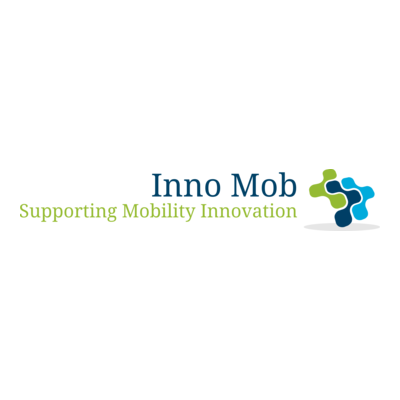
Creating Value in Mobility ecosystems
Coventry University & BOOSTERLabs, members of the Inno-Mob project consortium, are holding an online workshop, "Creating Value in French #Mobility Ecosystems," on 12 December 2023. The workshop will present the upcoming funding opportunities under Horizon Europe 2024 calls and will feature an interactive co-design session using the #EIT Value Creation Model.
Creating Value in #Mobility Ecosystems
Join us for a practical online workshop focused on mobility ecosystems and their value to businesses and individuals.
- Learn about new opportunities for funding under #horizoneurope 2024 calls.
- Learn about the #eit Value Creation Model and how it can be applied.
- Contribute to the discussion on the problems, challenges, and opportunities of the Mobility #innovation support sector in France through an interactive session.
Take advantage of this opportunity to network and engage in a meaningful discussion about the future of innovation support in mobility ecosystems!
The webinar will be conducted in English.
This webinar is co-organised by BOOSTERLabs a partner of InnoMob EU project.
InnoMob project has received funding from the European Union’s Horizon Europe programme under grant agreement No 101096746.
Register here
- 12/12/2023 - 14:00 - 12/12/2023 - 16:30
- This meeting will take place online
- Magdalena Pacholska
-
Member
-
Working Group
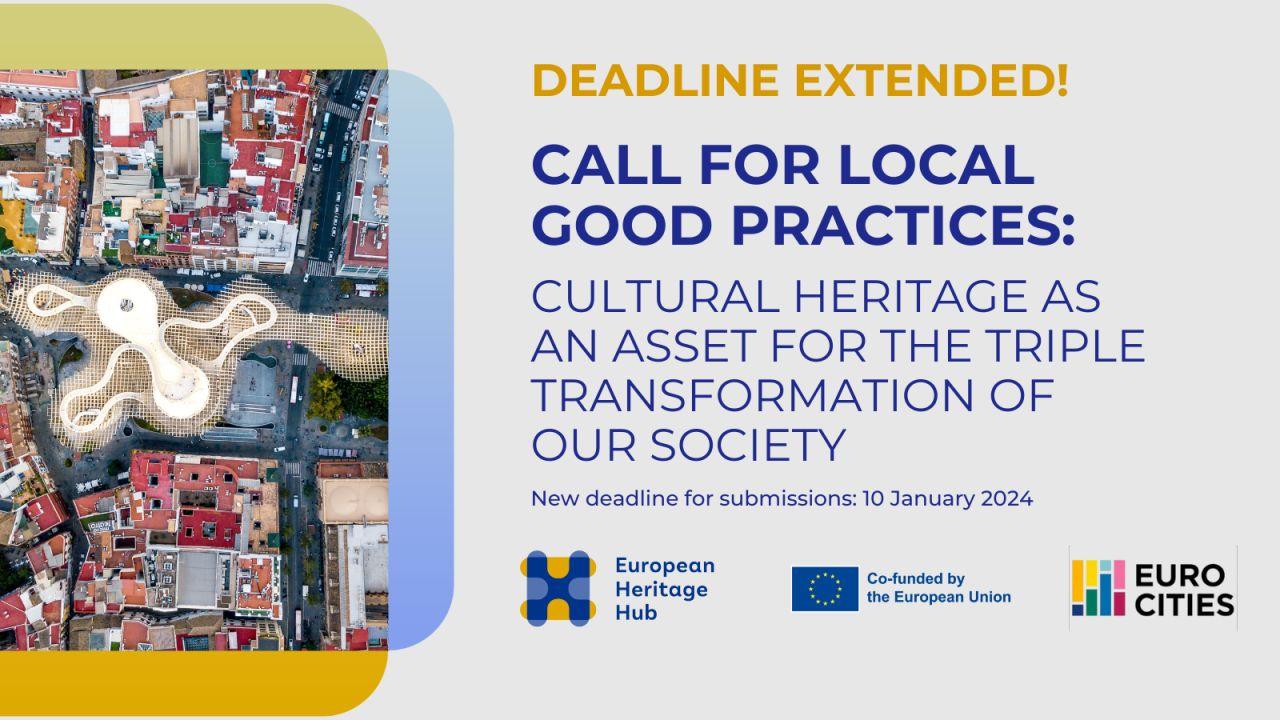
The European Heritage Hub project is looking for good practices
The European Heritage Hub is collecting good practices to share throughout Europe and beyond! Administrations of a city or region are asked to submit highlights of their work in heritage in the context of the ‘triple transformation ’ – green, digital and social – of our society.
To do so, please fill out this online form with a description of a practice in your area. Ten practices will be selected for publication and promotion through the European Heritage Hub. Cities whose good practices are selected also get the opportunity to host a peer learning visit with a delegation of 20 participants funded by the project (3 peer learning visits will take place between Q2 2024 and Q1 2025).
The European Heritage Hub offers this training and capacity-building programme aimed at city representatives and heritage professionals to share good practices and equip them with the skills to tackle environmental, digital, and social challenges related to heritage in their local contexts.
This will be done through:
- Collecting and showcasing ten inspirational practices from across Europe, emphasising impacts and transferability from one local context to others; these practices will be selected through this open call.
- Organising two onsite peer-learning visits in the European cities/regions and one onsite peer-learning visit dedicated to the city/region in the Caucasus (in Armenia, Azerbaijan, or Georgia) taking place in 2024-2025, allowing participants to learn from each other and from experts.
- Organising four thematic ‘sharing local stories’ online workshops exploring the identified good practices.
Peer-learning visits and online workshops are aimed at policymakers and city practitioners (at political/decision-making and technical levels from city or regional administrations), cultural heritage professionals, civil society organisations, NGOs, cultural initiatives/projects, local/regional organisations, thematic associations.
The deadline for applications has been extended to 10 January 2024.
Find out more here.
- Francesca Pozzebon
- 18/12/2023
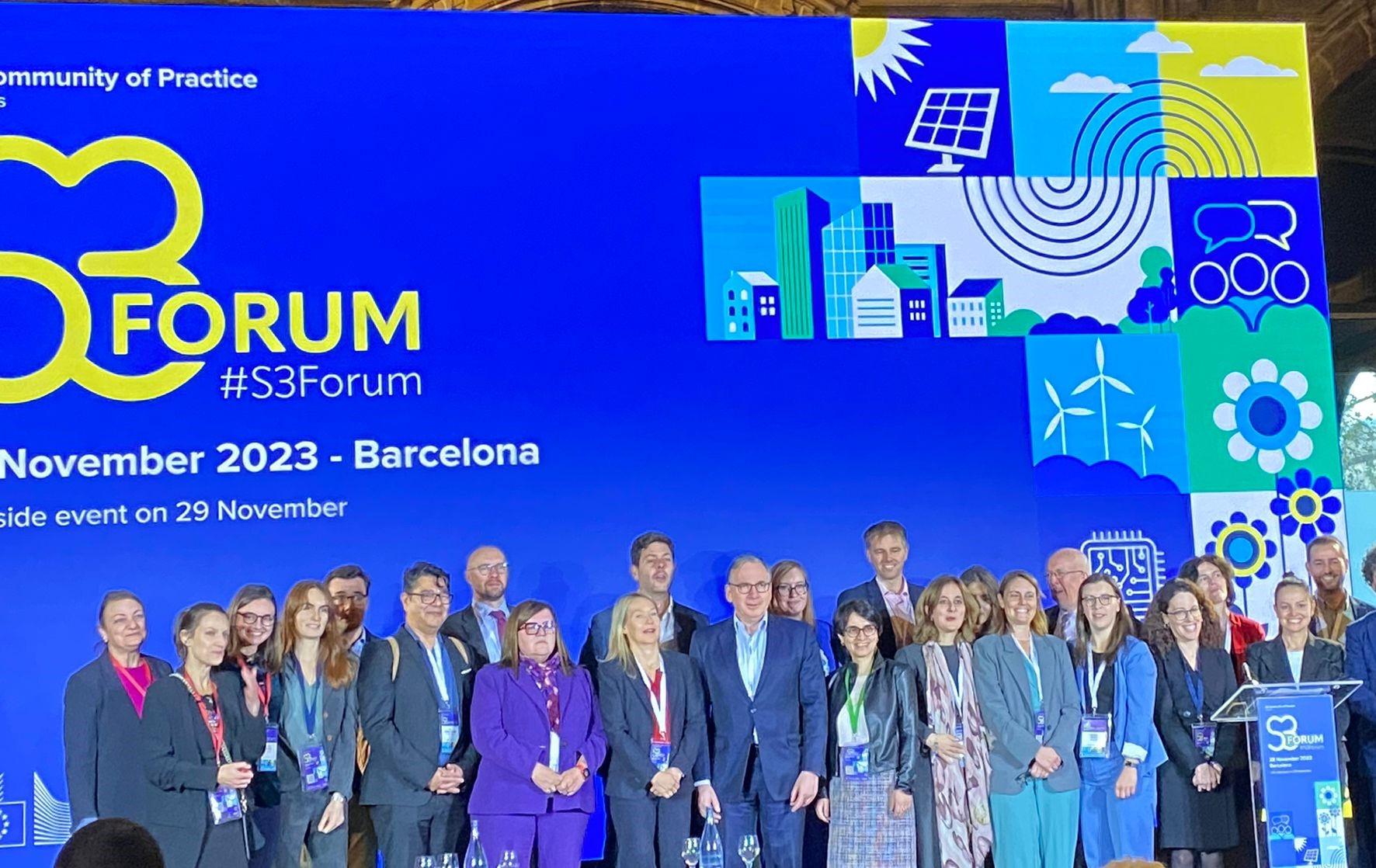
S3 Forum completed!
The S3 Forum – the first EU-level, in-person gathering on S3 since 2020 – took place on 28-29 November in Barcelona. ERRIN Secretariat joined the event alongside many network members and hundreds of S3 practitioners and experts from across Europe.
The bottom-up region-centric event was organised by the European Commission with the support of Generalitat Catalunya and the Secretariat of the S3 Community of Practice (S3CoP) where ERRIN is one of the partners.
The Forum opened on 28 November with a panel on #SmartSpecialisation in a changing world, followed by the presentation of the latest developments in the S3CoP including the launch of S3 Observatory, networking and breakout sessions dedicated to discussing S3 implementation, exchanging insights and best practices with voices from ERRIN Working Group leaders: Rasmus Bergander from Central Sweden European Office (S3 WG), Eva Damm from Representation of the Free State of Saxony to the European Union (Policy WG), and Wim de Kinderen from Brainport Eindhoven EU Office (Innovation & Investment WG and ICT WG). Many other members also took the floor in various sessions of the event.
ERRIN Director Pirita Lindholm spoke in a panel “From Local Strengths to Interregional Cooperation”, drawing attention to opportunities & challenges in interregional cooperation across the landscape of ecosystem collaboration initiatives beyond Thematic S3 Partnerships such as Partnerships for Regional Innovation (PRI), Interregional Innovation Investments (I3) Instrument, Regional Innovation Valleys, referring as well to EU Missions and emphasising the need to tackle innovation divide. Pirita also shared perspectives for S3 and recommendations for future cohesion policy, calling for strengthening the link to place-based innovation, and emphasising the importance of trust for effective collaboration and policy implementation at the regional and local levels.
On 29 November, we also followed the meetings of the S3 Thematic Platforms Steering Committee and S3CoP Working Group on Interregional Collaboration.
It was great to see and dive into face-to-face S3 discussions with so many familiar faces! We look forward to continuing the debate.
- Ewa Chomicz
- 30/11/2023
-
Working Group
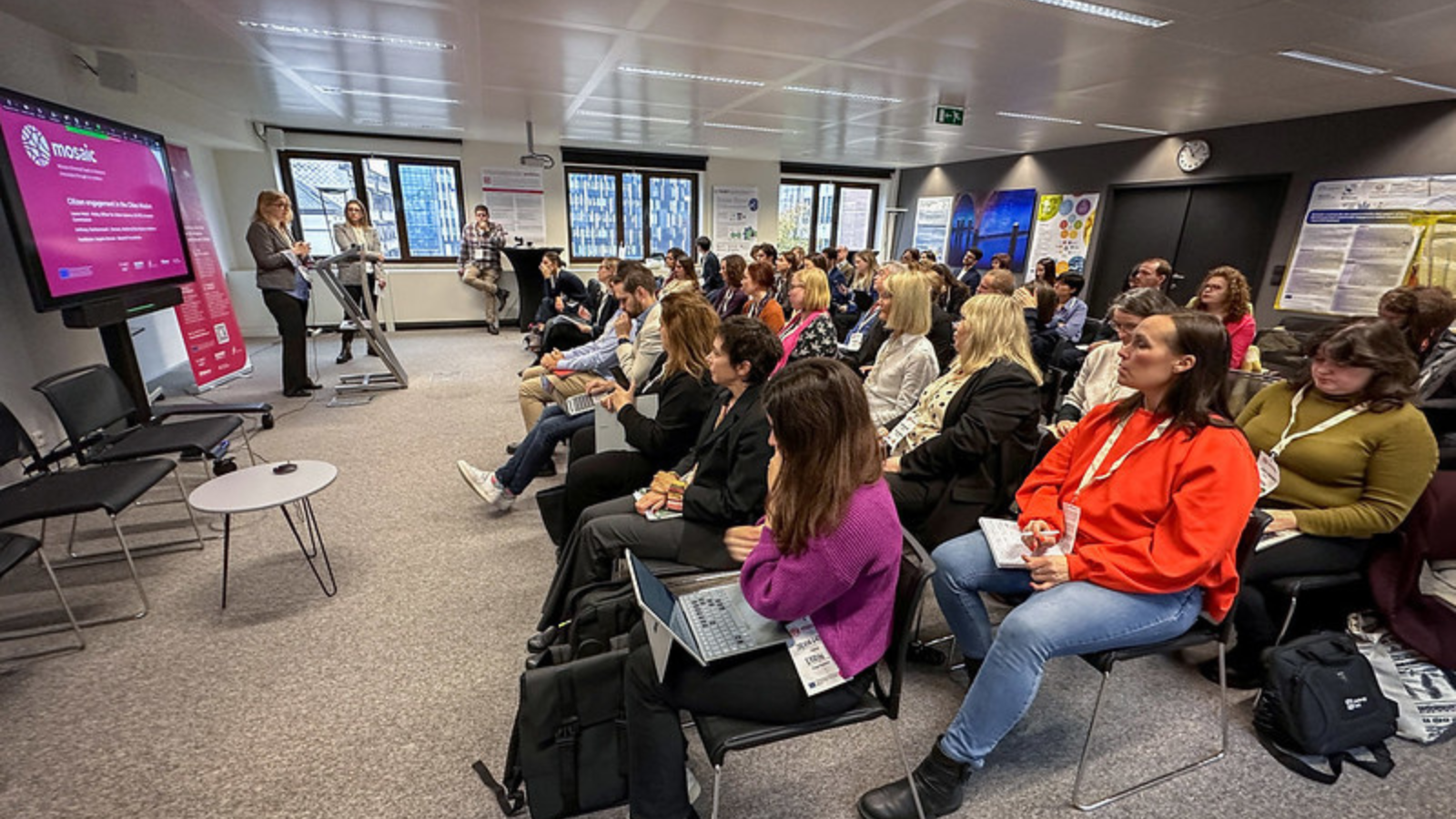
MOSAIC wraps up a successful co-creation journey with EU cities
In a dynamic two-day event held on 21 and 22 November, MOSAIC, project in which ERRIN is a partner, successfully hosted its final event 'Co-creation in EU Missions'.
City representatives, European Commission policy officers, researchers, private sector representatives and co-creation experts converged to delve the immense potential of co-creation in addressing complex challenges, particularly those posed by the Horizon EU Missions.
In the past three years, MOSAIC has worked with cities that aim at achieving climate neutrality by 2030, supporting some of them in implementing open innovation processes through co-creation. MOSAIC pilot cities, Gothenburg and Milan, have worked for over one year, involving a large variety of local stakeholders, including citizens, on the identification and light prototyping of shared solutions aligned with their Climate City Contracts. They have addressed challenges such as making mobility more sustainable, or providing citizens with better information on health-related risks in connection with air quality.
The event provided a unique opportunity to hear directly from the actors involved in the process about this journey and exchange with further committed EU cities the barriers and drivers of involving a large variety of stakeholders in their work on climate neutrality. In the dynamic fishbowl discussion moderated by ERRIN, practitioners, city representatives, private sectors and citizens shared their different perspectives and experiences on stakeholder engagement in the EU Missions, enabling the cities part of the MOSAIC Community of Practice to share some incredible work they are doing to advance climate neutrality involving a broad spectrum of stakeholders.
To further support the uptake of these initiatives, ERRIN has produced the MOSAIC Cookbook, a hands-on tool aiming at supporting further EU cities in the replication of these processes. The Cookbook not only describes the MOSAIC Methodology but draws on the practical experiences of the co-creation process in Gothenburg and Milan. This tangible resource offers practical insights and methods drawn from real-life experiences, empowering cities on their journey towards climate neutrality. Read the MOSAIC Cookbook here.
- Gianpiero Petruzziello
- 30/11/2023
-
Working Group

Partner search for project on Environmental impacts of food systems
The James Hutton Institute, a leading environmental research institute in Scotland, is looking for partners for the call, HORIZON-CL6-2024-ZEROPOLLUTION-01-3, looking at the environmental impacts of food systems.
The main aim of the project is to collect relevant qualitative and quantitative data on environmental and climate impacts related to water, air and soil pollution stemming from the food systems, biodiversity losses, climate change and negative impacts on human health, as well as data on freshwater consumption, soil erosion, resource and energy efficiency of food production and supply practices.
JHI is looking to find partners to build a consortium with or to join an existing consortium based on this call.
To express interest, please contact Lorna Murphy (lorna.murphy@scotent.co.uk)and Jean Boucher (jean.boucher@hutton.ac.uk) before the 5 January 2024.
- Lorna Murphy
- 30 November 2023
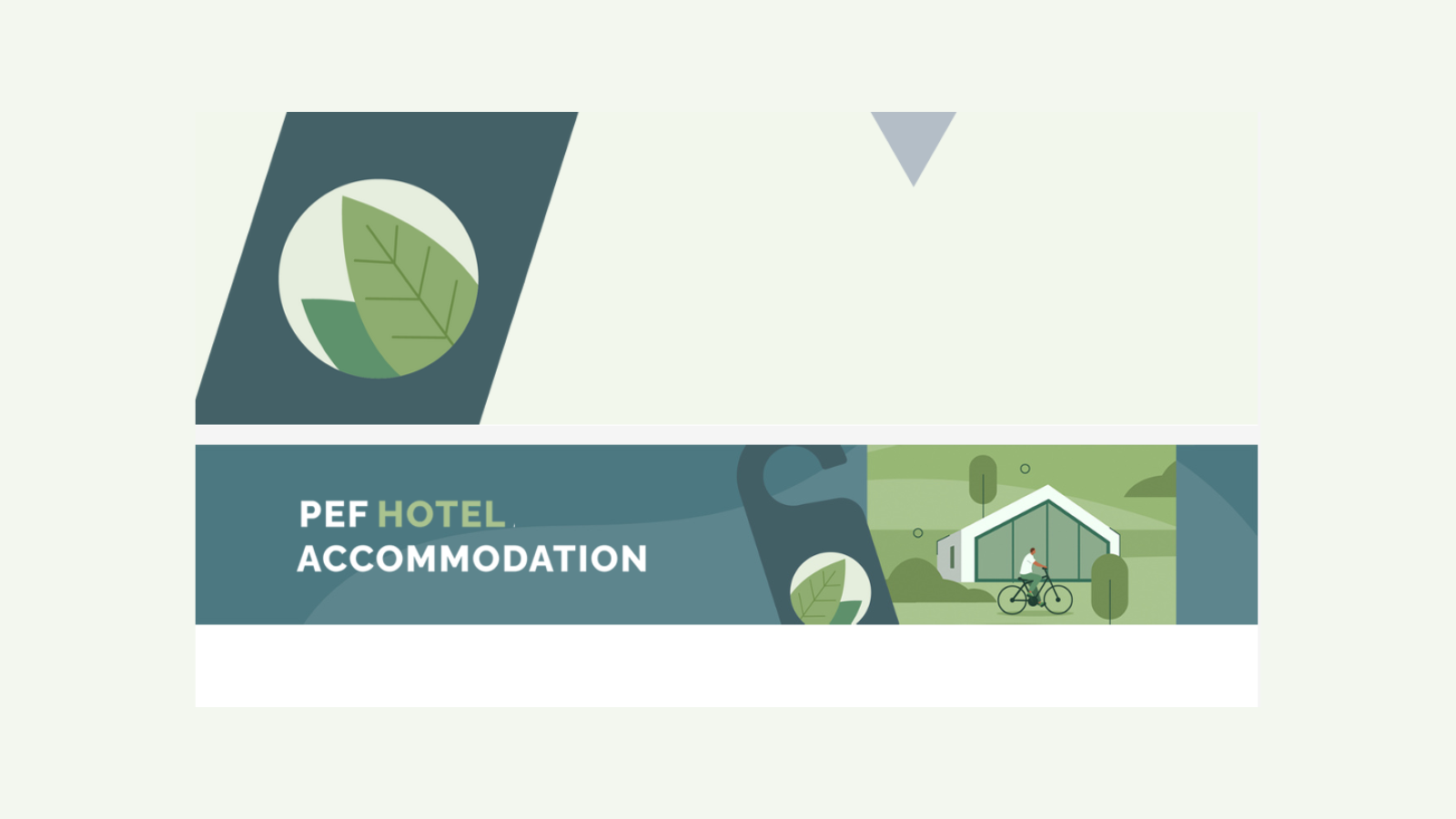
Product Environmental Footprint Category Rules for Hotel accommodation services: join the Technical Secretariat
In support of the sustainable tourism policies initiated by the European Commission, a collaborative, multi-stakeholder Technical Secretariat will develop PEFCRs for Hotel accommodations in the European Union. The project is implemented jointly by a consortium coordinated by Adelphi, Studio Fieschi & Societ and Maki Consulting as PEFCR experts and technical leads. HOTREC – the umbrella Association of Hotels, Restaurants, Pubs and Cafes and similar establishments in Europe – will co-chair the TS. In order to co-steer this development for the next 2.5 years, further stakeholders of the hotel industry, as well as NGO representatives, are invited to apply to be members of the Technical Secretariat.
The PEF is a comprehensive Life Cycle Assessment (LCA) method for quantifying the overall environmental impacts of products (goods or services), including carbon footprint, water footprint and a range of other environmental impacts, geared towards reliability and reproducibility of the results. The PEF is helping companies to calculate the environmental performance of their products based on specific, reliable, and verifiable information, for combatting greenwashing, and enabling fair and performance-based green claims. The Commission wants to support the EU hotel industry by developing a sound and recognised calculation method to substantiate environmental claims. Many labels and certifications have been developed in the past; more are constantly added, creating confusion and increasingly reducing trust in green claims. Hence, the PEF is the Commission's response to the demand for credibility via harmonisation, industry-wide recognition, and achieving comparability. To reach this goal, a set of specific rules needs to be defined for the respective product category in the form of a PEFCR.
The Technical Secretariat (TS) is the governing body that is developing the PEFCR. It will meet periodically to make technical decisions, discuss the progress made, and organise hotel industry testing of the draft PEFCR. There will be three-monthly meetings of the TS towards the final PEFCR over 2.5 years. The meetings are expected to be held in a virtual or hybrid format. TS members are required to regularly attend the meetings, review and comment on technical documents, and contribute to consensus-building and decision-making. Please be informed that the new Technical Secretariat members will be selected by December 2023, with the first meeting expected to take place in January 2024.
If you are interested in learning more in a webinar or have any further questions, please write to pefcr-hotels@adelphi.de.
- Francesca Pozzebon
- 30/11/2023

Human Centric AI for accelerated digital transformation
sustAIn.brussels, Enterprise Europe Brussels and CLAIRE are organising a matchmaking event to bring together companies, European Digital Innovation Hubs and research centres from a large number of European countries. This is a unique opportunity to generate new business contacts, to find technological and R&D partners. The meeting will take place in Brussels and online on 18-19 January.
Why Attend?
- Networking Opportunities: Connect with business, technological and R&D potential partners. Meet with AI experts who share your passion for leveraging artificial intelligence for the common good.
- Global Insights: Gain valuable insights into the latest trends, breakthroughs, and opportunities in the AI for Good ecosystem.
- Cutting-Edge Technology: Explore innovative AI solutions, products, and services that can drive positive change in areas like healthcare, education, mobility, sustainability, and more.
- Collaborative Partnerships: Discover potential partners, collaborators, and investors to help you boosting your AI for Good projects.
Who should participate?
- AI Solutions providers
- Entities looking for technological and R&D partners specialised in AI
- European research centres
- Entities willing to apply to EU funding opportunities, especially under Horizon Europe
- Companies willing to learn more about AI opportunities or to adopt AI solutions
- European Digital Innovation Hubs : advanced support for digitalisation. This is also an incubation opportunity in the EDIH network
How can you benefit from this event?
- Publish and showcase your products, projects, services or business needs to event participants
- Initiate and arrange promising pre-scheduled meetings at the event
- Generate fresh leads and meet new contacts in a time and cost-efficient way
- Stay one step ahead of your competitors by being seen and visibly present at the event
Register here.
- 18/01/2024 - 09:00 - 19/01/2024 - 17:00
- This meeting will take place online
-
Cantersteen 12
1000 Brussels
Belgium - Lucy Hammond
-
Working Group
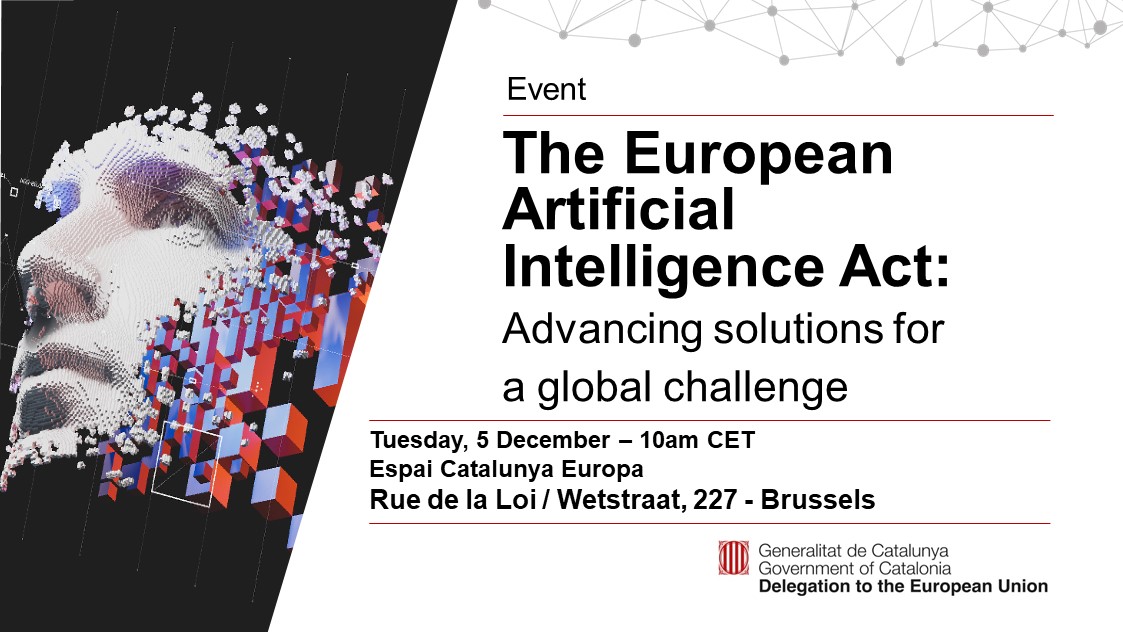
The European AI Act: Advancing solutions to a global challenge
Negotiations regarding the EU’s Artificial Intelligence Act (#AIAct) are entering their final phase, as the European Parliament and the Council, with the mediation of the European Commission, work on the last details of this eagerly awaited legislation. An agreement is expected during the coming days. In fact, the next meeting of the trilogue will take place next week, on 6 December.
In light of the high expectation surrounding these negotiations, the Delegation of the Government of Catalonia want to facilitate a compelling debate on the proposal by organising a public event the day before, 5 December at 10:00, at the Delegation of the Government of Catalonia to the European Union.
We'll bring together leading civil society organisations, top experts and authorities, leading developers, practitioners and decisive decision makers.
They will share their views and explore the agreed-upon text of this very relevant legislation, and what impact it might bear upon Europe and on the broader global landscape.
Please register for the event here.
Agenda
09:50 Doors open
10:00 Opening address
- Ignasi Centelles, Representative of the Government of Catalonia to the EU
10:15 Keynote:
- Gina Tost, Secretary for Digital Affairs, Government of Catalonia
10:30 Europe’s AI Act: An Inspiration for the World
- Ella Jakubowska, Senior Policy Adviser, European Digital Rights (EDRi)
- Sergey Lagodinsky, Member of the European Parliament (Greens/ALE), AI Act shadow rapporteur
- Jeremy Rollison, Head of EU Policy & Senior Director, European Government Affairs, Microsoft
- Tony Vanderstraete, Head of Digital Strategy and Transformation, Flanders Digital Agency
11:15 Q&A
11:30 The Global Conversation on an AI Regulation
- Rashad Abelson, Technology Sector Lead / Due Diligence Expert, OECD.AI
- Marjorie Buchser, Executive Director of the Digital Society Initiative, Chatham House
- Paula Pérez, Program Officer, Open Government Partnership (OGP)
- Gina Tost, Secretary for Digital Affairs, Government of Catalonia
12:15 Q&A
12:30 Networking opportunity
- 05/12/2023 - 10:00 - 05/12/2023 - 12:30
-
Delegation of Catalonia to the EU
Rue de la Loi / Wetstraat, 227
1040 Brussels
Belgium - Maria Orobitg
-
Working Group

Call for replicators in a proposal on systemic circular solutions for a sustainable tourism
A consortium of European regional stakeholders is developing a proposal for systemic circular solutions for sustainable tourism under the call HORIZON-CL6-2024-CircBio-01-4, and they are looking for regions/actors interested in taking part in the proposals as replicators.
The innovative solutions will be first developed and tested in three pilot regions and, after an impact assessment study, replicated in several other European regions.
The replicators should be actors with experience and expertise in the areas of tourism, circular economy, transport and/or waste management, all connected to digital solutions.
Interested members can contact francesca.pozzebon@errin.eu by 6 December 2023.
- Francesca Pozzebon
- 29 November 2023
Erasmus Small-scale partnership - "Young in tourism"
- Joakim P. Berg
- 28/11/2023
-
Funding Programme
-
Deadline for Expression of Interest15 December 2023
-
NameLene SørbråtenOrganisation NameNord-Gudbrandsdal upper secondary school
- Get in Touch